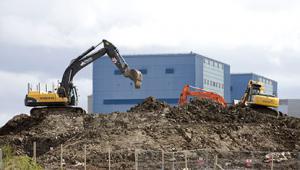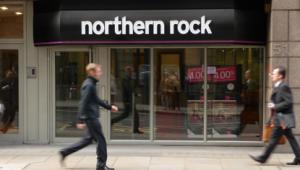The flagship programme, which launched in February 2013, was intended to stimulate the market for household energy-saving adaptations such as efficient boilers, double glazing and insulation. Through the Green Deal Finance Company it provided finance to homeowners that could be repaid through their energy bills, but the scheme was closed after last year’s election due to low take up.
In an in-depth examination, the National Audit Office said the Green Deal had cost a total of £240m and did not achieve value for money. Across the estimated 14,000 homes that had agreed Green Deal finance, the average cost to the government was over £17,000.
Auditor general Amyas Morse noted that the Green Deal was just one way the government had tried to improve household energy efficiency. Other measures included the Energy Company Obligation (ECO), under which the largest energy suppliers are required to install energy saving adaptations in customers’ homes in order to cumulatively reduce carbon dioxide emissions. Companies face penalties if the targets are not met.
Morse said: “The Department of Energy and Climate Change’s ambitious aim to encourage households to pay for measures looked good on paper, as it would have reduced the financial burden of improvements on all energy consumers.
“But in practice, its Green Deal design not only failed to deliver any meaningful benefit, it increased suppliers’ costs – and therefore energy bills – in meeting their obligations through the ECO scheme. The department now needs to be more realistic about consumers’ and suppliers’ motivations when designing schemes in future to ensure it achieves its aims.”
According to the report, DECC’s design and implementation of the Green Deal did not persuade householders that energy efficiency measures are worth paying for. Although the department achieved its target to improve 1 million homes through the Green Deal and ECO, this could not be used as a direct indicator of progress as different types of energy-efficiency measures save different amounts of CO2.
Indeed, the schemes saved substantially less CO2 than previous supplier obligations, mainly because of the initial focus on ‘harder-to-treat’ homes. The department expects the measures installed through ECO up to 31 December 2015 to save 24 megatonnes of carbon dioxide, only around 30% of what the predecessor schemes achieved over similar timescales.
Public Accounts Committee chair Meg Hillier said the report showed the department had been “flying blind”. Together the Green Deal and ECO have cost over £3bn to date, but DECC has achieved little in the way of energy savings, she highlighted.
“I am also concerned that the Green Deal Finance Company is expected to pay back less than half of the £48.5m in loans it received from the department,” she added.
“How the department protects taxpayer money is just one of the questions we will press them on when they appear before us.”
However, a DECC spokesman said a range of government schemes had delivered over £6bn of energy bill savings to the most vulnerable.
“This government is clear about the need to have firm financial controls in place to protect consumers, which is why we took action last July to address the issues in this report – stopping funding to the Green Deal Finance Company and setting up an independent review of the energy efficiency sector,” he added.
“We are now designing a new scheme that will help make even more homes warmer and bring people’s bills down.”




















